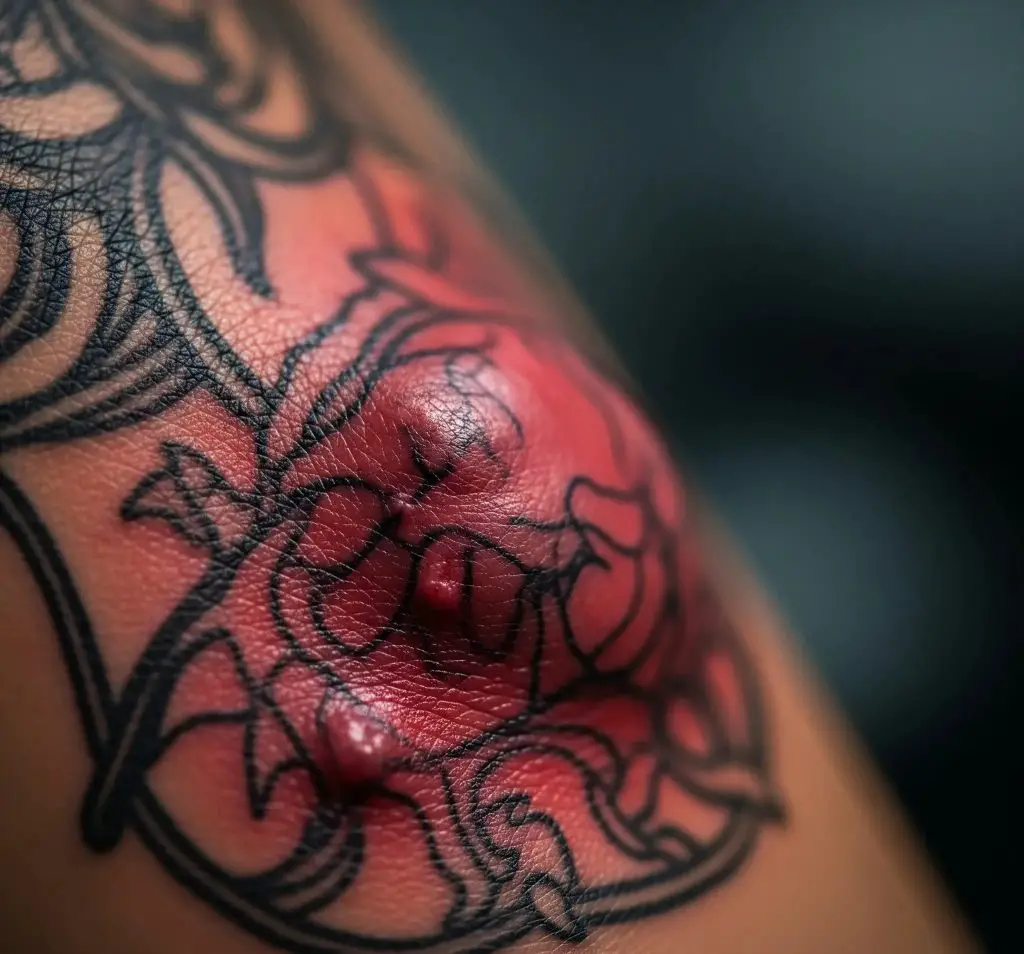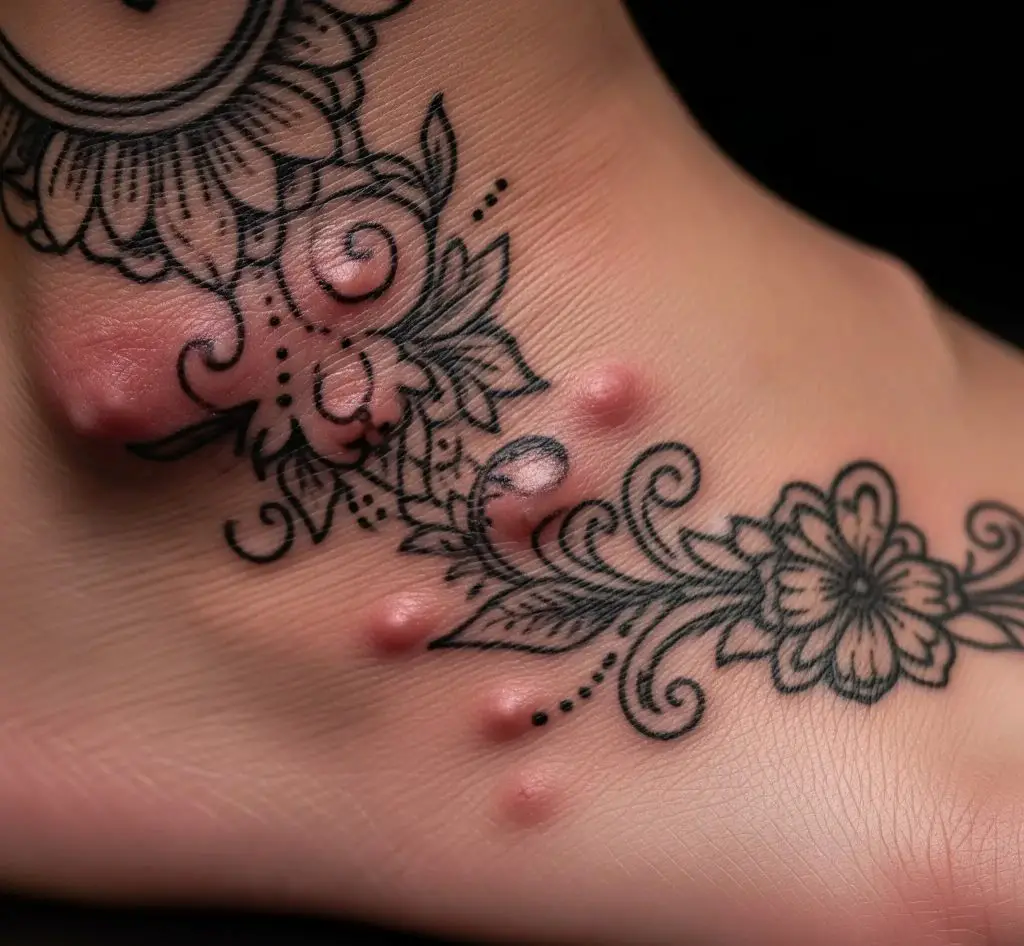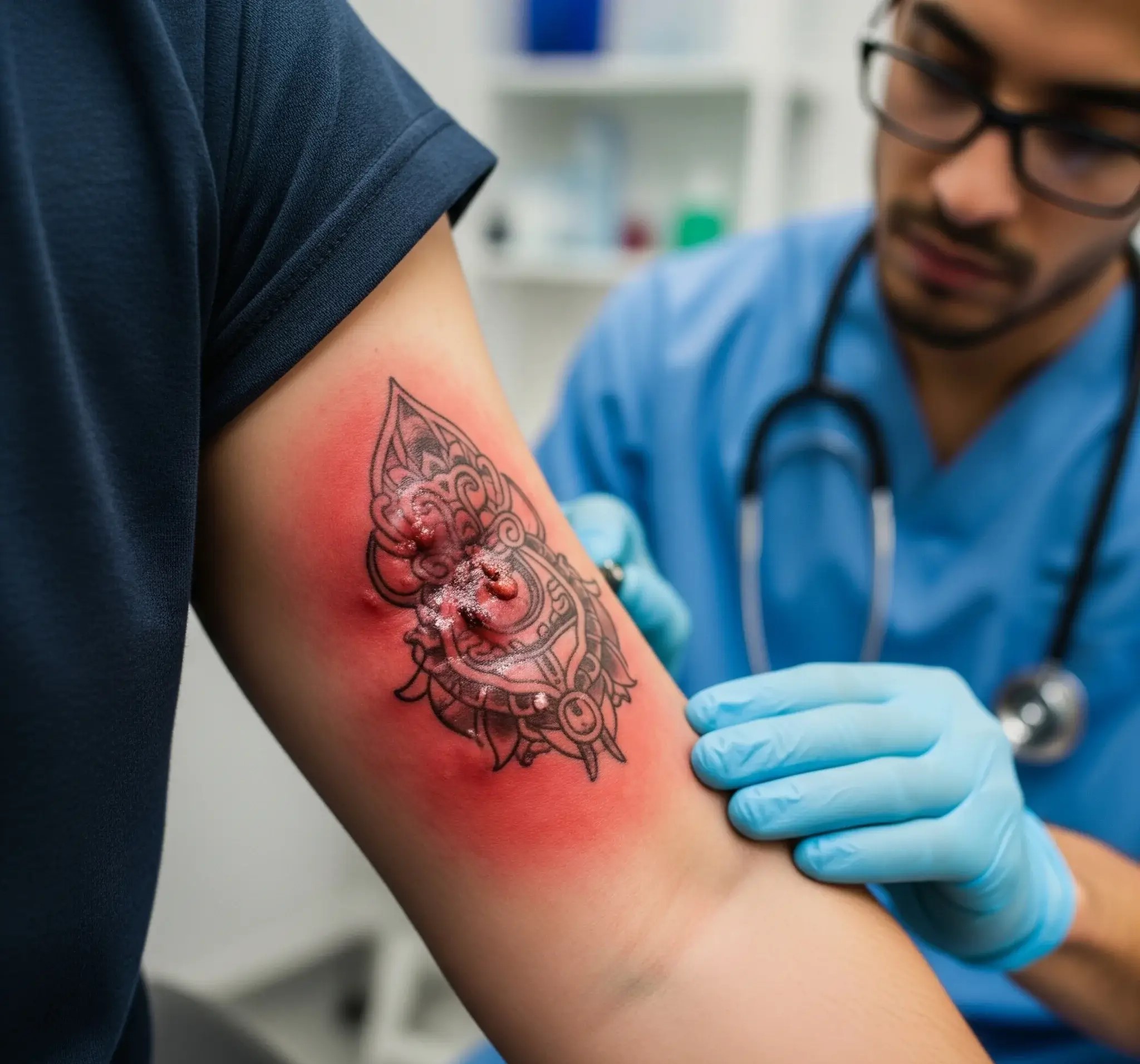Have you ever wondered, can you die from tattoo infection? Most people think of tattoos as harmless body art, but the truth is, if a tattoo gets badly infected and isn’t treated on time, it can lead to serious health problems—even death.
While it doesn’t happen often, it’s still possible, especially if the infection spreads into your bloodstream.
Getting a tattoo means breaking your skin, and anytime the skin is open, germs can get in. If you’re not careful with aftercare or go to an unhygienic tattoo artist, you’re at risk.
This guide will help you understand the dangers, warning signs, and how to stay safe—because your health should never be taken lightly.
Can You Die From A Tattoo Infection?
Yes, it’s rare — but you can die from a tattoo infection if it becomes severe and spreads.
Most tattoo infections are mild and treatable, but in some cases, they can lead to serious conditions like sepsis, which can be fatal.
That’s why understanding the signs, causes, and when to get medical help is critical for your safety.
Signs Of A Deadly Tattoo Infection
A normal healing tattoo might be slightly red or itchy, but serious infections show much stronger symptoms. Watch for these red flags:
- High fever (over 101°F / 38.3°C)
- Spreading redness or swelling beyond the tattoo
- Pus with a foul odor
- Chills or sweating
- Rapid heart rate or dizziness
These symptoms may mean the infection is spreading into your bloodstream — and needs urgent care.
How Common Are Fatal Tattoo Infections?
Fatal tattoo infections are extremely rare — but they do happen, especially when:
- Unsterile needles are used
- Tattoo aftercare is ignored
- The person has a weakened immune system
In most healthy adults, infections are treatable with antibiotics. But ignoring severe symptoms increases the risk of complications.

When A Tattoo Infection Becomes Life-Threatening?
A tattoo infection becomes life-threatening when it turns into:
- Sepsis (a body-wide immune response)
- Necrotizing fasciitis (flesh-eating bacteria)
- Blood poisoning (bacteremia)
These conditions can develop within 1–3 days of exposure to dangerous bacteria. If untreated, they can lead to organ failure or death.
Tattoo Infection Sepsis: What You Should Know
Sepsis is the most dangerous complication of tattoo infections. It happens when your body overreacts to an infection and starts attacking itself.
Warning Signs of Sepsis:
- Extremely low or high temperature
- Confusion or disorientation
- Shaking chills
- Fast breathing or heart rate
- Pale, cold, or blotchy skin
Sepsis needs emergency hospitalization. Never delay treatment.
Early Symptoms That Should Never Be Ignored
Don’t wait until things get worse. Seek help if you notice:
- Worsening pain instead of healing
- Bright red streaks moving away from the tattoo
- Blistering or bubbling skin
- A warm, swollen area that feels hard
These are early indicators that the infection is moving deeper into your skin — possibly toward your bloodstream.
What Happens If You Leave a Tattoo Infection Untreated?
Leaving a tattoo infection untreated can result in:
- Permanent scarring
- Deep tissue damage
- Spread of infection to other body parts
- Blood infections like sepsis
- In extreme cases, death
The longer you wait, the harder it is to treat.
How Fast Can a Tattoo Infection Spread?
A mild infection can worsen in just 24 to 72 hours if left untreated. Bacteria multiply quickly — especially in warm, moist environments like an unhealed tattoo.
High-risk people (diabetics, immunocompromised individuals) may see faster progression and need medical help immediately.
Hospital Cases Linked to Infected Tattoos
Some real-life reports show patients being admitted for:
- Sepsis from an infected back tattoo
- Cellulitis after using unclean aftercare products
- MRSA infections due to unhygienic tattoo tools
These stories prove that serious infections can happen, especially with unlicensed artists or poor hygiene.
How To Prevent A Tattoo Infection From Turning Deadly?
Follow these safety tips:
Before the Tattoo:
- Go to a licensed tattoo artist
- Make sure they use sterile needles and gloves
- Check reviews or hygiene certifications
After the Tattoo:
- Wash your hands before touching the tattoo
- Gently wash the tattoo with mild soap
- Avoid scratching or picking at scabs
- Never apply petroleum jelly or thick creams
- Avoid swimming and sun exposure during healing
Is Death From Tattoo Infection Rare or Real?
It’s both real and rare. Most people heal without any problems, especially if they follow good aftercare. But cases of death from tattoo-related sepsis or necrotizing fasciitis have been documented. Don’t ignore warning signs — your health is more important than assumptions.
Which Infections From Tattoos Can Be Fatal?
Some infections that can turn deadly:
- Sepsis – body-wide immune response
- MRSA – antibiotic-resistant bacteria
- Staph infection – common but dangerous if untreated
- Necrotizing fasciitis – rare but fast-spreading skin infection
- Bloodborne viruses – like Hepatitis C or HIV from unclean tools

Tattoo Aftercare Mistakes That Can Be Dangerous
Even a clean tattoo can get infected if aftercare goes wrong.
Common Mistakes:
- Not washing hands before touching the tattoo
- Re-wrapping the tattoo with plastic
- Using scented lotions or petroleum-based creams
- Ignoring signs of infection
- Using dirty towels or pillowcases
Avoid these to lower your risk.
When To Go To The ER For A Tattoo Infection
Go to the emergency room if you experience:
- High fever with chills
- Fast heartbeat or breathing
- Extreme fatigue or confusion
- Skin around tattoo turning black or purple
- Pus draining heavily or foul smell
These are medical emergencies and shouldn’t be treated at home.
Tattoo Allergies vs Infections: What’s More Risky?
Allergies are usually not life-threatening, but infections can be.
Allergies:
- Red rash, bumps, or itching
- Reaction to specific ink (especially red or yellow)
- Often appear days or weeks after the tattoo
Infections:
- Pain, swelling, pus
- Fever and fatigue
- Can spread and become deadly
If unsure, see a doctor for a proper diagnosi
Final Thoughts
Getting a tattoo can be exciting, but safety comes first. While it’s rare, you can die from a tattoo infection if it spreads or turns into sepsis.
Always go to a licensed artist, follow proper aftercare, and take any signs of infection seriously. Your health matters more than ink.
Read More:
- Tattoo Flu: Symptoms And Prevention Guide
- 12 Bold Sagittarius Tattoo Ideas With Deep Meaning
- Can You Get A Tattoo If You Have Sensitive Skin? A Full Guide
- 13 Taurus Tattoo Ideas That Show Off Your Zodiac Power
- Top 12 Ghost Face Tattoo Designs To Try Now
- 10 Meaningful Kids Tattoos For Moms That Melt Your Heart
- Top 13 Pumpkin Tattoo Ideas For Halloween Lovers
- 12 Freddy Krueger Tattoo Ideas Every Horror Fan Will Love
- Top 12 American Flag Tattoo Designs To Inspire You
- 10 Stunning June Flower Tattoos With Meaning
- 13 Meaningful Blue Butterfly Tattoo Ideas For Women
- 12 Meaningful Blue Heron Tattoo Ideas You’ll Instantly Love
- 12 Teacher Tattoo Ideas That Celebrate Your Calling
- 12 Small Lily Tattoo Ideas That Are Pure And Beautiful
- 12 Crab Tattoo Ideas For Women That Are Cute And Bold
- 15 Stunning Back Leg Tattoos Women Are Loving Now
- 12 Stunning Bird Tattoos For Women That Are Full Of Meaning
